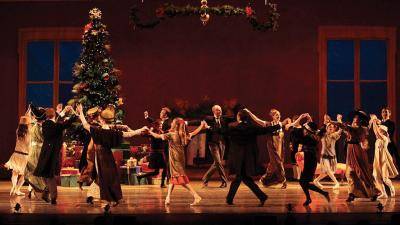When my parents first told me that they would help me pay for college, I was, of course, so grateful and overjoyed. They always have been, and remain to this day, incredibly supportive, and I'm very blessed to have a family that has the means to help me as much as they have. However, I was less excited once I heard their condition - that I had to select a second "practical" major, in addition to my dance major, to study as well.
Well, when you're 18 and excited to begin a dance program, that's not exactly what you want to hear. I decided I would take on a journalism major, but I was pretty annoyed - I wanted my entire focus to be on dance, and nothing else. I wanted to go to the studio in the morning for technique classes, and stay there for rehearsals late into the evening. I didn't want to take on another degree program that would have my afternoons and evenings filled with studying, and I DEFINITELY didn't want to sacrifice time that I could be dancing for time spent in a lecture hall.
We can enter a room with confidence, commanding attention and respect immediately
I'm sure I'm not the only one who has heard this from their parents - my dance major was filled with other dancers who were also double majoring. And though I wasn't excited at first, I ended up loving my second major (Literary Journalism) and I use what I learned everyday (... clearly). And though many may think that a dance major only prepares you for a dance-related career, I believe that the skills that I learned in my dance degree were just as valuable as the skills learned in other non-dance majors and can translate to many different kinds of jobs and career paths, as well as life in general.
Here are my top three life skills that I learned as a dance major:
1. Non-Verbal Communication & Body Awareness
Dance is an art form that's completely non-verbal. As performers, we have to learn to confidently communicate stories and emotions without saying a word. Beyond the stage, there's a particular set of manners that are demanded of dancers, especially in ballet class. Sit up straight, pay attention, don't cross your arms, be conscientious of those around you...the list goes on and on. I've found that these skills have translated particularly well to job interviews. As dancers, we are hyper-aware of our body at all times, so we know exactly where is it and what it's doing. We can enter a room (read: stage) with confidence, commanding attention and respect immediately. We can minimize excess movements, remain calm and poised - and that goes a long way for many employers! But it's also a skill that I use everyday, whether it be maneuvering onto a crowded subway car, or diffusing a tense situation in the office.
2. Technical Know-How
Most dance and theater programs require some backstage work as part of the curriculum, whether it's costuming, lighting, stage management, etc. And though it may seem like something boring that you just have to survive as a freshman, you can actually develop a lot of very useful skills that will serve you well not only in the workforce, but in life! For example - after working in my university's costume shop, I can fix minor fashion emergencies at the drop of a hat. Now, as a theater manager, my knowledge of lighting and stage management has come in handy more times than I can count. And I'm proud to say that after some emergency set repair during my junior year, I'm pretty handy with a hammer, which, let me just say, is a good skill to have when you're moving apartments in New York City!
If you can handle a performance gone wrong, you can certainly handle a difficult work situation.
3. Stress Management
Being a dancer is stressful. From managing a busy schedule of classes and rehearsals to making sure that you make your entrance onstage at precisely the right moment, dancers have to be on their toes (literally and figuratively). And things happen! There can be technical issues, from music slip-ups to power failures. Someone can mess up choreography or miss a cue, and you have to adjust in the moment. After all, the show must go on! And you have to handle everything calmly, with clarity and poise, so the audience has no idea that anything was wrong in the first place. Stress shows up everywhere - in our day-to-day lives, and in every single job you could ever have. But let's be real - if you can handle a performance gone wrong, you can certainly handle a difficult work situation. And if you can manage a jam-packed dancer schedule, you can certainly juggle a variety of jobs! That's what's been most helpful for me; at one point during my time in New York, I was handling no less than nine different work commitments. And that may seem crazy to a lot of people, but after four years of dance classes, journalism classes, rehearsals, and performances, nine jobs seemed like a breeze!
I've been living and working in New York for almost three years, and dance is just a small part of what I do. Sure, I still take class and perform as much as I can. But I've just finished my certification in Wedding & Event Planning, and I'm excited for this new career path. If you think about it, planning an event requires many of the same details and skills as planning a production! Bottom line - though your future may surprise you, the lessons you learned as a dancer will follow you and carry you for the rest of your life. Once a dancer, always a dancer!




